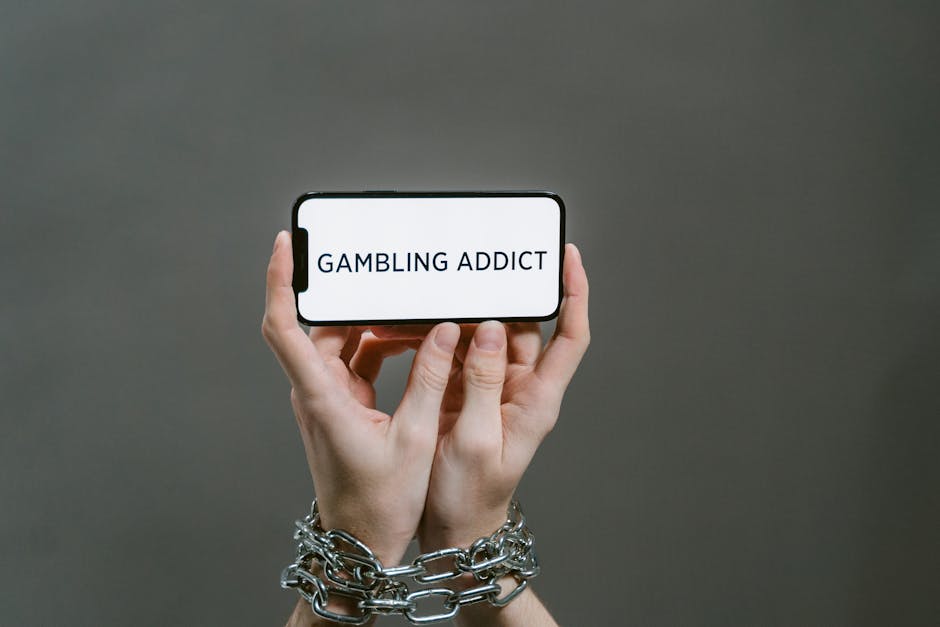Exploring the intricate web of addiction reveals striking similarities and unique differences among various forms. As I delve into the comparison between gambling addiction and other types of addiction, a nuanced understanding emerges. The allure and impact of compulsive behaviors extend beyond substance abuse, shedding light on the complexities of human behavior and dependency.
In this article, I’ll navigate through the distinct characteristics of gambling addiction, contrasting them with traditional forms of addiction. By dissecting the psychological and societal implications, we can uncover the shared mechanisms and divergent pathways of addictive behaviors. Join me on this insightful journey as we unravel the intricate tapestry of addiction, drawing parallels and distinctions that shape our perception of these compelling phenomena.
Understanding Addiction Basics
As I delve into addiction, it’s essential to grasp the fundamental concept of addictive behaviors and their underlying mechanisms.
The Concept of Addiction
Addiction, at its core, is a complex condition characterized by the compulsive engagement in rewarding stimuli despite adverse consequences. It’s a persistent cycle that impacts one’s cognitive functions, behavior, and emotions, leading to a loss of control over the addictive behavior.
Psychological and Biological Mechanisms
In understanding addiction, it’s vital to acknowledge the intertwined psychological and biological mechanisms that drive addictive behaviors. Psychological factors such as stress, trauma, and mental health disorders can trigger addictive tendencies, while biological components like genetic predispositions and neural pathways play a significant role in reinforcing addictive behaviors. The intricate interplay of these mechanisms shapes the development and maintenance of addiction across different types of addictive disorders.
Overview of Gambling Addiction
Gambling addiction shares commonalities with other forms of addiction, yet it also possesses unique characteristics that set it apart. Understanding the intricacies of gambling addiction is crucial in comprehending its impact on individuals’ lives and society as a whole.
Characteristics of Gambling Addiction
Gambling addiction, like other types of addiction, is characterized by a compulsive need to engage in the behavior despite negative consequences. Individuals with a gambling addiction often experience an increasing preoccupation with gambling, leading to a loss of control over their impulses. This can result in severe financial consequences, strained relationships, and a disregard for personal well-being.
Factors Contributing to Gambling Addiction
Various factors contribute to the development of gambling addiction, including psychological, environmental, and genetic influences.
- Psychological factors: Stress, anxiety, and depression can drive individuals to seek solace in gambling activities as a form of escape.
- Environmental influences: Exposure to gambling at a young age or societal acceptance of gambling can play a significant role in the development of addiction.
- Genetic predispositions: Certain individuals may be more biologically prone to addictive behaviors, increasing susceptibility to developing a gambling addiction.
Understanding these contributing factors is essential in addressing and treating gambling addiction effectively.
Comparing Gambling Addiction to Substance Abuse
When comparing gambling addiction to substance abuse, I find both similarities and key differences in their impact on individuals.
Similarities in Behavior and Treatment
In my experience, both gambling addiction and substance abuse share similarities in terms of the behaviors they exhibit and the treatment approaches required. Individuals struggling with either type of addiction may show compulsive behaviors, difficulty controlling impulses, and a heightened urge to engage in the addictive activity. Treatment for both conditions often involves therapy, support groups, and in some cases, medication to address underlying issues.
Key Differences in Addiction Impact
In my observation, one key difference between gambling addiction and substance abuse lies in the physical effects on the body. While substance abuse can lead to physical dependence and health complications, gambling addiction primarily impacts mental and emotional well-being. Additionally, the social consequences of each addiction can vary, with substance abuse often resulting in a more visible decline in personal relationships and financial stability compared to gambling addiction.
Comparing Gambling Addiction to Behavioral Addictions
When comparing gambling addiction to behavioral addictions, it’s essential to analyze the compulsive behaviors associated with these addictive tendencies and understand the treatment approaches and challenges that come with addressing them.
Analysis of Compulsive Behaviors
In examining compulsive behaviors related to gambling addiction and behavioral addictions, the key similarity lies in the repetitive and irresistible urge to engage in specific activities despite negative consequences. These behaviors are driven by a reward-seeking mechanism within the brain, leading individuals to seek gratification through their actions. Whether it’s the thrill of winning in gambling or the temporary relief provided by certain behaviors in behavioral addictions, the compulsive nature remains a common trait.
Treatment Approaches and Challenges

Addressing gambling addiction and behavioral addictions often involves multifaceted treatment approaches tailored to individual needs. Behavioral therapies, such as cognitive-behavioral therapy (CBT), are commonly used to modify negative thought patterns and behaviors associated with these addictive tendencies. Support groups and counseling play a vital role in providing emotional support and guidance throughout the recovery process.
However, challenges exist in treating these addictive behaviors, particularly concerning the hidden nature of behavioral addictions compared to more visible substance abuse. Identifying and acknowledging the problem is often the first step, followed by navigating potential relapses and addressing underlying psychological factors contributing to the addictive behaviors. The treatment landscape for gambling addiction and behavioral addictions continues to evolve, emphasizing the importance of personalized approaches and ongoing support systems to help individuals overcome these challenges effectively.
Impact on Affected Individuals and Society
In examining the repercussions of addiction, both on individuals and society, it is imperative to consider the profound personal and social consequences, as well as the significant economic implications associated with addictive behaviors.
Personal and Social Consequences
Addiction, whether it pertains to gambling or other forms, can have devastating effects on individuals and their loved ones. The relentless pursuit of the addictive behavior can lead to strained relationships, social isolation, and a decline in overall well-being. Personal consequences may include financial ruin, emotional distress, and a compromised sense of self-worth. The insidious nature of addiction can exacerbate mental health conditions and amplify feelings of guilt and shame.
On a societal level, addiction contributes to increased healthcare costs, law enforcement expenses, and loss of productivity in the workforce. The ripple effect of addiction extends beyond the individual, affecting families, communities, and society as a whole. Moreover, the stigma associated with addiction can hinder individuals from seeking help and perpetuate a cycle of secrecy and denial.
Economic Implications
The economic impact of addiction, including gambling addiction, is multifaceted and far-reaching. Individuals grappling with addiction often face financial instability, mounting debts, and the depletion of savings and assets. These financial burdens not only affect the individual but also strain social services and charitable organizations that provide support to those in need.
Moreover, addiction-related behaviors, such as compulsive gambling, can lead to a decline in workplace productivity, absenteeism, and increased healthcare costs. Employers may bear the brunt of reduced efficiency and employee turnover due to addiction-related issues. Additionally, the broader economy may suffer from decreased consumer spending and potential disruptions in various industries.
Understanding the personal and social consequences, as well as the economic implications of addiction, underscores the urgent need for comprehensive intervention strategies, support systems, and treatment modalities to address the complexities of addictive behaviors and mitigate their impact on affected individuals and society as a whole.




